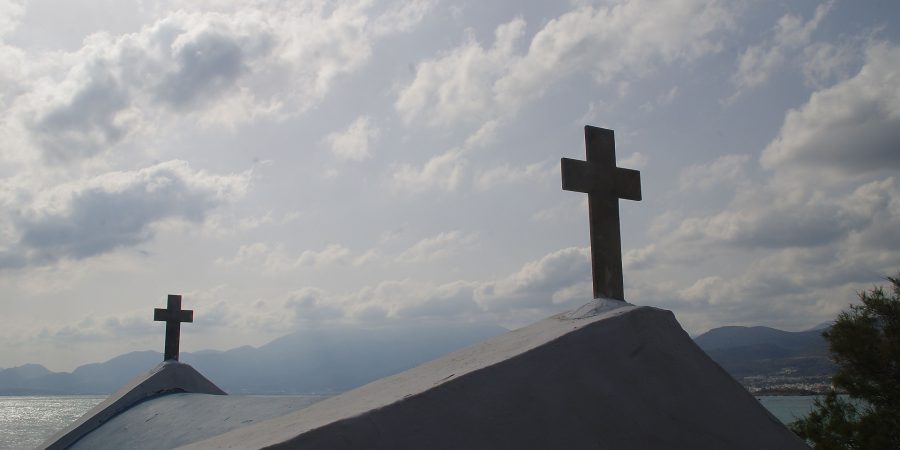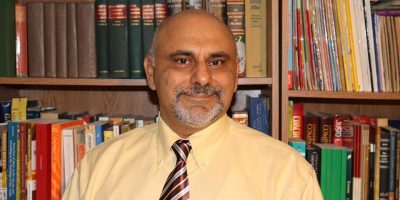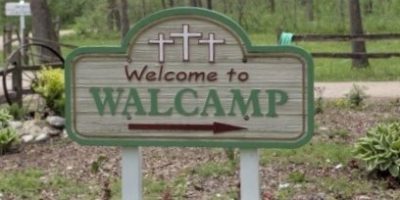The celebration of the Resurrection on this Easter Sunday morning may be saying to us in this COVID-19 moment...
Opinion: An Easter sermon in a coronavirus pandemic

For Christians, it means the proclamation of release over suffering, hope over despair, and life over death. Still, there is no special immunity from COVID-19 granted by physically gathering to worship God.
You don’t love your neighbors by putting their health and their neighborhoods at risk.
This will be the first Easter in recent memory when Christians across the globe will be unable to join with their fellow believers to celebrate the resurrection of Jesus Christ. One biblical text is gaining new meaning in this time is Matthew 18:20 which reads, “for where two or three gather in my name, there am I with them.”
Virtual Easters are taking place today as pastors and lay leaders “minister” to very small groups of believers; parents with their children, other related or closely connected people who are sheltering together, even individuals who are alone but might feel less alone because of the focus on very small groups of people watching intensely from their homes.
Two or three, or even one, but no more than ten. Worshiping together, while staying apart, to celebrate the most important day of Christian faith, might bring us even closer in this Easter that nobody will forget.
I know that many pastors around the country are focusing on their Easter sermon more than they have in years past. Many are connecting with each other and finding innovative online channels and resources with social media connectivity that enables them to bring worship, prayer, messages, and even music into the homes of their parishioners.
Many people who now live in new places can reconnect with their faraway home churches. My wife’s parents, now in a clergy retirement community in England, are sharing in the virtual services of every church they have ever served. And even many “former” church people are turning back to virtual spiritual services in this crisis for inspiration, substance, and community. This could change congregations in ways we can’t even imagine now.
As pastors and churches are living into these new and difficult realities, here are three practical and vocational roles that faith communities can play right now in this pandemic crisis:
Faith communities must put their moral authority behind the doctors and scientists pleading with us to practice and maintain our physical distance from one another as the only way to “flatten the curve” of this pandemic and literally save lives
-
- . And when the false ministers who refuse science and disobey their elected officials out of their own egos rather than religious liberty, it must be other clergy and congregations that rebuke them. If the “re-opening” of the economy and society becomes
politicized,
-
- faith communities must stand with public health authorities and their state and local elected leaders closest to the people to determine when it is safe.
We must also fulfill our critical role in preventing social distancing from becoming social isolation.
-
- Physical distancing must not be allowed to overcome our social
solidarity
-
- , which is a biblical meaning of community. I believe that the clear role of faith communities is becoming core to us as we approach this holy weekend. Keeping together while standing apart is a vital skill and practice that faith communities can help create and promote—even beyond their doors
We must dive into and deepen our vocation to focus on the most vulnerable.
- Jesus specifically says that how we treat the “least of these” is literally how we treat him. And that text of Matthew 25 is the record of the last sermon he gave just before he entered Jerusalem. The least of these are the least important in Washington D.C. but for followers of Jesus they must be the most important, and Easter is the right time to proclaim that.
This pandemic has become very revealing of the inequities in our society, the gaping holes in our safety net, and the disparities in our health care and other systems, and the reality of our relationships across racial and economic lines. It has shined a light into the darkness of what we have ignored or accepted for far too long. The coronavirus has exposed and laid bare social injustice, which undermines both our common good and our common health.
For example, it has been said that the coronavirus does not discriminate.
But that is not true.
Especially when poor people and too many black and brown people in America don’t have access to safe homes, steady incomes, reliable and healthy food, safe spaces and the prospect of social distancing in their required work and family lives, or access to health and healthy bodies; which makes them more likely to contract and die from this disease. Poverty and the impacts of structural racism are “co-morbidities,” or preconditions that make it more difficult to avoid and/or survive this lethal coronavirus.
Some people are asking when we will go back to normal.
But we won’t and we really can’t. This historical moment will change us—in ways we can’t control or even predict. How we act now, and with whom, and for whom, will shape and even determine who “we” will be when this current health crisis begins to pass.
My dear friend, Richard Rohr, a Franciscan priest and spiritual teacher, gave me an image this Holy Week of a crucified Christ on the cross this Good Friday with outstretched hands saying to a world of coronavirus suffering, “I can’t stop your suffering, but am with you in it.”
The celebration of the Resurrection on this Easter Sunday morning may be saying to us in this COVID-19 moment, “I can, and we can make these things that have been revealed new.”
Two women rushed back early that morning from the graveyard with the happy news that everything can be different now. Other disciples ran wide-eyed into an empty tomb and ran out with courage in their hearts. Two men walking in utter despair bumped into a stranger, realized who it was, and found hope again. A movement began whose message was that all things can be made new.
What if all that we are learning about our systems and attitudes and relationships in this modern plague that is wrong, brutal, unjust, and unjustifiable were to be made new? That this public health crisis would prompt a resurrection in our hearts and minds, reminding us that we will not go back to “normal.”
In a post-COVID world, we must come together to choose decisions and actions that make things “new.”
Christ is risen, He is risen indeed.
(Jim Wallis is founder, president and editor-in-chief of Sojourners and the author of 12 books, including American’s Original Sin, God’s Politics, The Great Awakening, and The Call to Conversion. The views expressed in this commentary do not necessarily reflect those of Religion News Service.)
Read more news at XPian News… https://xpian.news




Comments are Closed